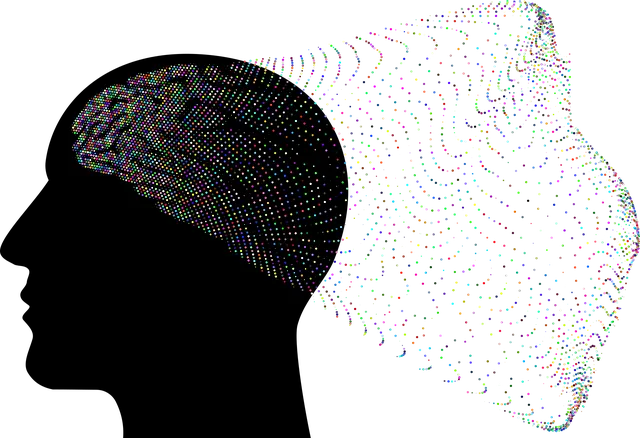The Arvada Kaiser Permanente mental health center employs advanced data analysis techniques, integrating patient demographics, clinical data, and social determinants of health to gain profound insights into community mental health trends. Their robust EHR systems streamline data collection while ensuring strict privacy through encryption and training. This holistic approach prioritizes cultural sensitivity, enhances risk management for staff, and enables evidence-based treatment plans tailored to diverse patient needs. By leveraging data-driven insights, the center revolutionizes care delivery, facilitates early intervention, and advocates for effective mental health policies, ultimately improving community well-being.
“Mental health data analysis is transforming the way we understand and address psychological well-being. This article explores the power of data interpretation in enhancing care at progressive centers like Arvada Kaiser Permanente. We delve into their unique approach, examining data collection methods that prioritize accuracy and patient privacy. By analyzing trends within patient records, the mental health center gains valuable insights, leading to actionable strategies for improved treatment. Discover how data-driven decisions are revolutionizing mental healthcare, leveraging best practices from industry leaders like Arvada Kaiser Permanente.”
- Understanding Mental Health Data: A Glimpse into Arvada Kaiser Permanente's Approach
- Data Collection Methods at the Center: Ensuring Accuracy and Privacy
- Analyzing Trends: Uncovering Insights from Patient Records
- Interpretation Strategies: Translating Data into Actionable Steps
- Enhancing Care with Data-Driven Decisions: The Future of Mental Health Treatment
Understanding Mental Health Data: A Glimpse into Arvada Kaiser Permanente's Approach

At Arvada Kaiser Permanente mental health center, understanding data goes beyond simple numbers. They adopt a comprehensive approach that integrates patient demographics, clinical presentations, and treatment outcomes to gain deeper insights into mental health trends within their community. This involves analyzing not just the severity of conditions but also the social determinants of health that influence them, such as socioeconomic status, education level, and cultural background. By integrating Cultural Sensitivity in Mental Healthcare Practice, they ensure that data interpretation reflects the diverse needs of their patient population.
Furthermore, Arvada Kaiser Permanente prioritizes robust risk management planning for mental health professionals to safeguard both patients and providers. Effective communication strategies are at the heart of this process, fostering a supportive environment where patients feel heard and understood. This holistic view of mental health data not only guides clinical decision-making but also informs strategic planning and resource allocation, ultimately enhancing the quality of care provided by their dedicated team of professionals.
Data Collection Methods at the Center: Ensuring Accuracy and Privacy

At the Arvada Kaiser Permanente mental health center, data collection methods play a crucial role in ensuring accurate and insightful analysis. The center employs advanced electronic health record (EHR) systems that streamline patient data capture, enabling efficient tracking of mental health indicators. These digital tools not only simplify the documentation process but also enhance inter-professional communication, leading to more consistent and precise assessments.
Privacy is a paramount concern in mental health care. The Arvada Kaiser Permanente center adheres to stringent data protection protocols, including encryption of patient records and strict access controls. Additionally, staff members undergo regular training on ethical data handling practices, emphasizing the importance of confidentiality and fostering an environment where individuals feel secure to share sensitive information. This dual focus on data accuracy and privacy ensures that insights derived from analysis are both reliable and ethically sound, benefiting both patients and practitioners at the center.
Analyzing Trends: Uncovering Insights from Patient Records

At Arvada Kaiser Permanente mental health center, data analysis plays a pivotal role in understanding trends within patient records. By meticulously examining this data, healthcare professionals can uncover valuable insights that drive improvements in treatment plans and service delivery. Through advanced analytics techniques, they identify patterns related to various mental health conditions, such as depression, anxiety, or PTSD, allowing for more tailored interventions. This process involves sifting through a vast array of information—demographic details, diagnosis dates, treatment modalities, and patient feedback—to reveal correlations and anomalies that might not be apparent at first glance.
By analyzing trends in patient records, the center can facilitate the development of effective public awareness campaigns aimed at early detection and intervention. For instance, identifying peaks in specific mental health concerns during certain seasons or after significant events can inform the timing and content of these campaigns. Moreover, cultural sensitivity in mental healthcare practice is enhanced through data-driven insights into diverse patient populations. This knowledge enables the organization to organize stress management workshops that cater to various cultural backgrounds, ensuring inclusivity and effectiveness in promoting mental well-being.
Interpretation Strategies: Translating Data into Actionable Steps

At Arvada Kaiser Permanente mental health center, interpretation strategies play a pivotal role in transforming raw data into actionable steps that foster positive change. By employing advanced statistical methods and qualitative analysis techniques, mental health professionals can gain profound insights from patient records, surveys, and feedback mechanisms. This involves meticulous examination of trends, patterns, and outliers within the data to identify areas requiring urgent attention or innovative interventions.
For instance, analyzing survey responses on self-care routines development for better mental health could reveal a growing need for stress management workshops or mindfulness programs. Similarly, risk management planning for mental health professionals can be enhanced through data-driven insights into burnout rates and potential triggers, enabling the implementation of strategies that prioritize inner strength development among staff members. These actionable steps not only improve patient outcomes but also contribute to creating a more supportive and resilient environment within the Arvada Kaiser Permanente mental health center.
Enhancing Care with Data-Driven Decisions: The Future of Mental Health Treatment

At Arvada Kaiser Permanente mental health center, data analysis is transforming care delivery and shaping a brighter future for patients. By leveraging advanced analytics, healthcare professionals can gain deep insights into patient populations, enabling more precise and personalized treatment plans. This data-driven approach allows for early intervention in conditions like depression and anxiety, potentially preventing escalation and improving long-term outcomes.
The integration of mental health policy analysis and advocacy into these practices ensures that care strategies are evidence-based and aligned with the latest research. By understanding trends and patterns within patient data, providers can advocate for more effective mental health policies at both local and national levels. This holistic approach to mental health—combining advanced technology with thoughtful policy decisions—paves the way for a more supportive and accessible system, ultimately enhancing the well-being of communities such as those served by Arvada Kaiser Permanente.
Arvada Kaiser Permanente mental health center’s innovative data analysis approach, encompassing accurate collection, trend identification, and actionable interpretation, sets a new standard in healthcare. By leveraging patient records, this strategy not only unearths valuable insights but also promises to enhance mental health treatment outcomes. The future of care is data-driven, ensuring personalized and effective interventions for those in need. This method proves that through careful analysis, we can revolutionize mental health support and create a more resilient community.






